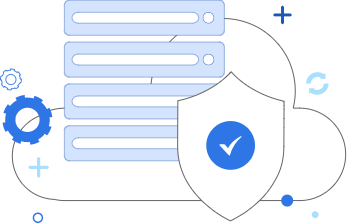


Compliance with the Digital Personal Data Protection Act (DPDPA) isn’t just about avoiding penalties; it signals to investors, stakeholders, and customers that you take their privacy seriously, helping you outpace your competition.

The DPDPA is a regulatory requirement that addresses data privacy and protection concerns in India.
Comparisons have been drawn between the DPDPA and the EU’s GDPR, as they have many similar requirements.
The Act is enforced by the Data Protection Board of India, an independent body.
We have three branches of offerings that will ensure your compliance with the DPDPA.

We work with everyone from C-suite executives to frontline engineers to address how the DPDPA can be implemented for your organization.

We implement actionable items from our advisory, tailoring security tools and strategies to suit your unique requirements.

We manage your ongoing activities on a day-to-day basis. This includes privacy controls, data breach management, data protection impact assessment (DPIA), grievance redressal management, and more.

Post the enactment of the DPDPA, organizations are gearing up for regulatory compliance. This eBook covers the key points of the act that are crucial to know, such as terminology, scope and applicability, and implementation guidelines.

Get a ready-made set of controls that your organization can customize and implement for DPDPA requirements. Leverage 95 controls, divided over 32 subjects across 9 lifecycle phases.

Complying with the DPDPA requires organizations to first outline data protection policies, strategies, and procedures. Leverage a set of templates that you can customize and implement for DPDPA requirements.
Want to gauge the status of your organization regarding data privacy and understanding of the DPDPA? Take our questionnaire to receive a report that will help you achieve the next levels of risk control.
Get your free pre-assessment questionnaire!Assessed business requirements, implemented recommendations, and operationalized DPDPA compliance requirements. Processes resulted in reduction in both incidence response time and data storage cost. Client can now confidently address data privacy and compliance requirements.
ClientLeading business process management company
 25% Cost reduction in data storage
25% Cost reduction in data storage 72 to
48 Hours reduction in incident response time
72 to
48 Hours reduction in incident response time 70%
to 90% Improvement in CSI
70%
to 90% Improvement in CSIAssessed business requirements, implemented recommendations, and operationalized DPDPA compliance requirements. Processes resulted in reduction in both incidence response time and data storage cost. Client can now confidently address data privacy and compliance requirements.
ClientLeading business process management company
 25% Cost reduction in data storage
25% Cost reduction in data storage 72 to 48 Hours reduction in incident response time
72 to 48 Hours reduction in incident response time 70% to 90% Improvement in CSI
70% to 90% Improvement in CSIA data principal is an individual whose personal data is processed. Also known as a data subject.
On the other hand, a data fiduciary is any person who, alone or in conjunction with other persons, decides the means and purpose of processing personal data. Also known as a data controller under the GDPR.
Finally, a data processor is an entity that processes personal data on behalf of data fiduciaries.
The fines of the DPDPA vary widely. For organizations, it can range from INR 50 crore to 250 crore. For data principals, it can go up to INR 10,000.
“Personal data” refers to any data about an individual who is identifiable by or in relation to that data. This may include names, location data, ID numbers, online identifiers, and so on.
There are, with some exceptions, no restrictions on cross-border data transfer. Countries with restrictions have not been finalized yet.